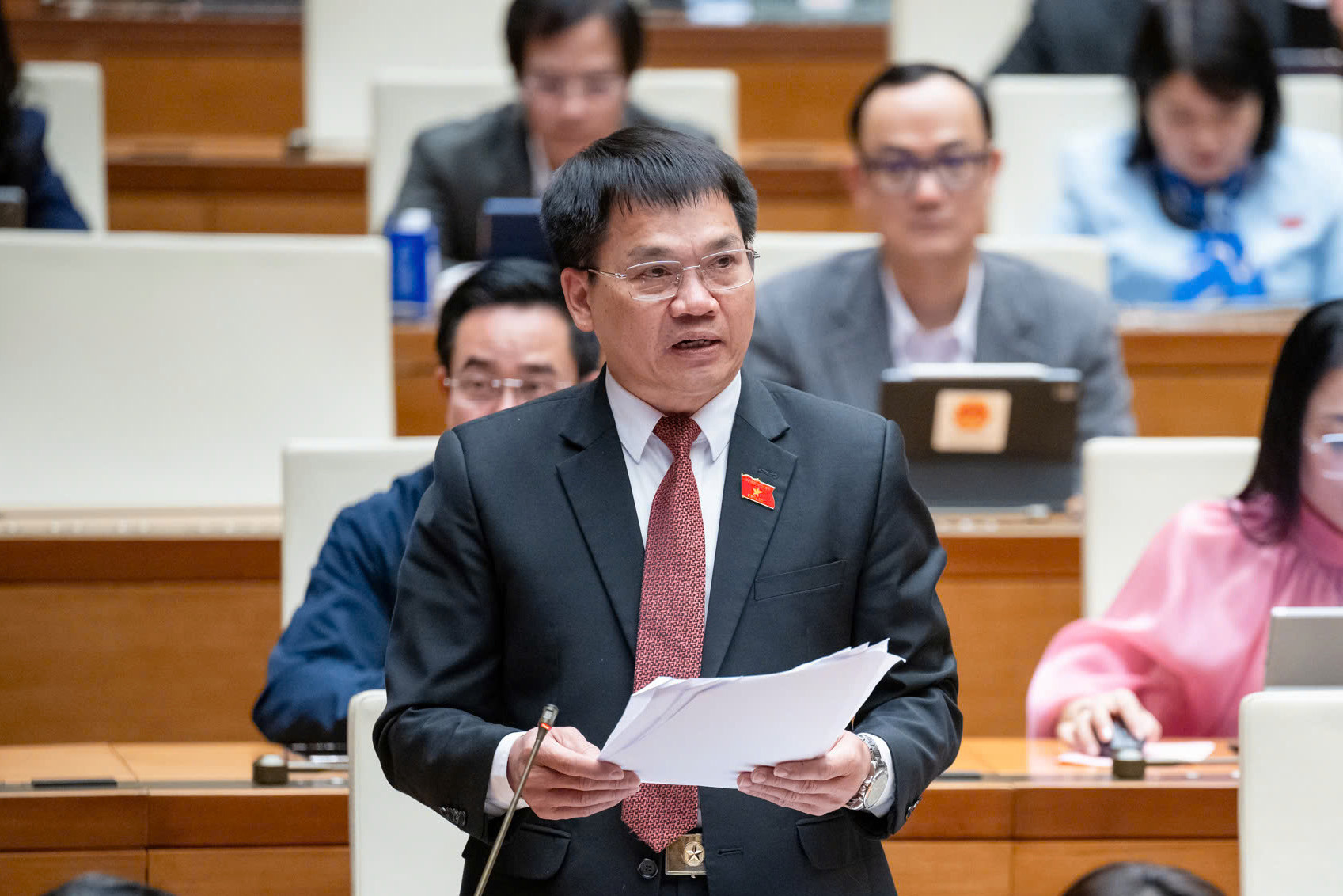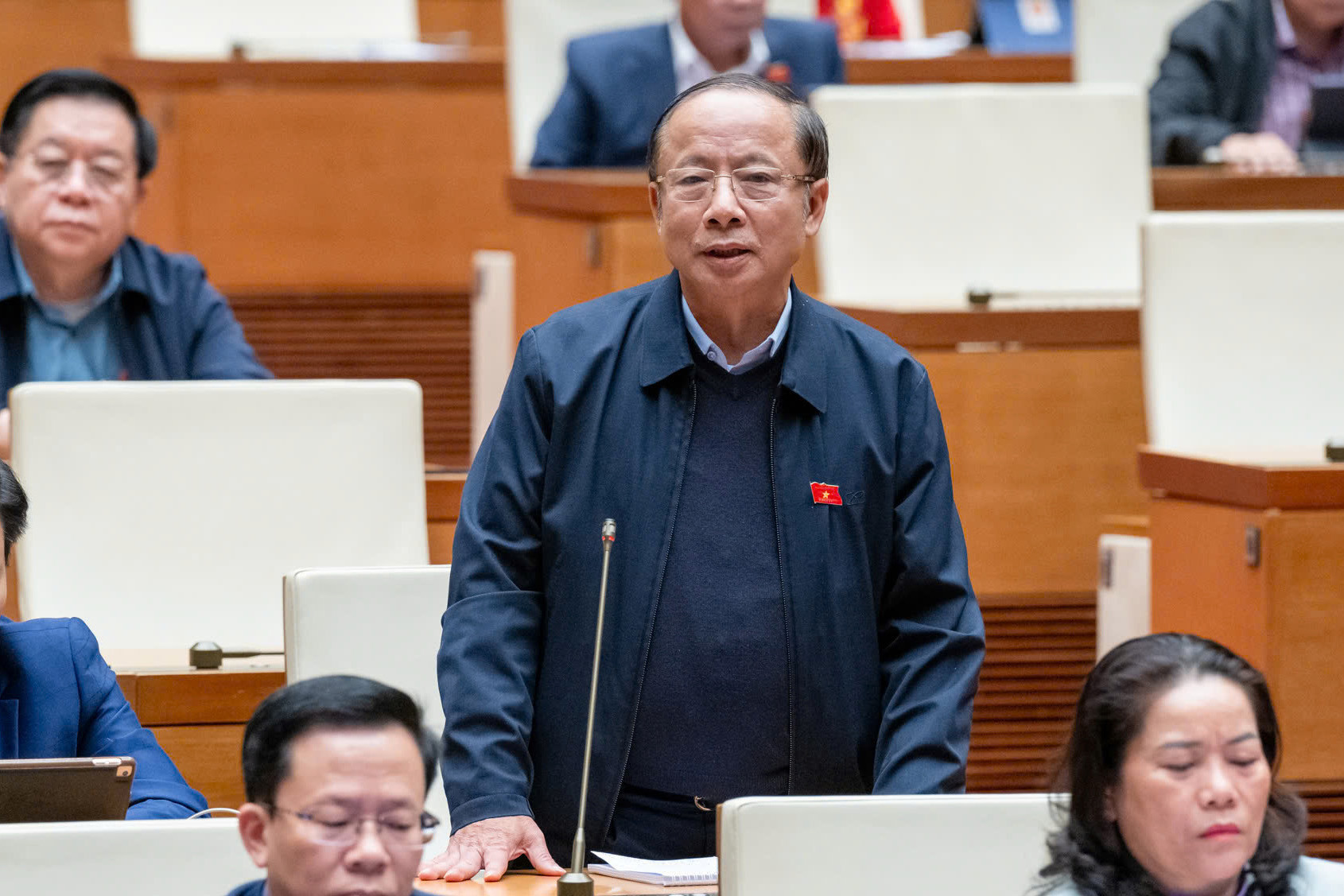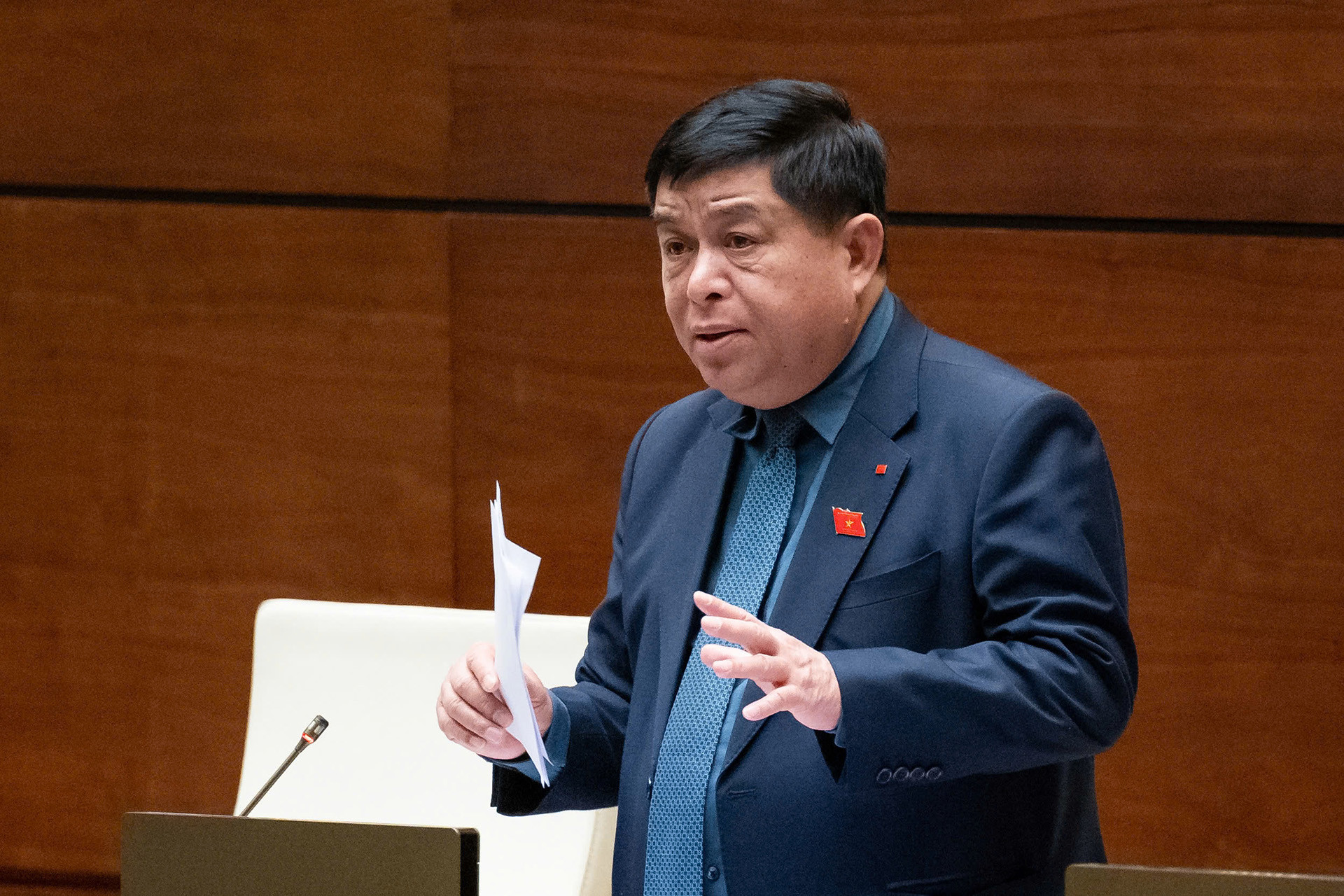National Assembly members have suggested implementing periodic KPI assessments for public officials every three months, six months, and annually. Those achieving outstanding results could receive awards or even promotions.
On February 15, the National Assembly debated an additional plan for socio-economic development in 2025, with the goal of achieving a growth rate of at least 8%. The majority of delegates expressed support for the proposal.
Delegate Duong Khac Mai from Dak Nong noted that given Vietnam’s highly open economy, achieving 8% growth would require maximum effort from the entire political system and the public. He emphasized the need to improve legal frameworks, strengthen law enforcement, and eliminate regulatory bottlenecks.
Overcoming institutional barriers to unlock development

Mai pointed out that institutional constraints remain a significant obstacle, with governance still leaning more toward management rather than fostering development. Several policies and regulations have been slow to adapt, while decentralization efforts continue to face limitations.
He suggested that the resolution should include solutions to break these bottlenecks and create new growth opportunities. Additionally, he called for strategic investments in modern infrastructure and improved public investment efficiency, particularly addressing delays in public investment disbursement.
Specifically, Mai urged the government to accelerate the implementation of Power Development Plan 8 and find solutions for stalled renewable energy projects, which he described as "standing still like a giant question mark in the sky, causing massive social waste."
Introducing performance-based assessments for public officials

Delegate Nguyen Van Than from Thai Binh proposed introducing KPI-based performance evaluations for government officials and civil servants. He recommended assessing their work performance at three-month, six-month, and annual intervals. Those achieving exceptional results should receive commendations, financial rewards, and even promotions.
Than stressed the importance of clear decision-making authority, ensuring that matters under the government's jurisdiction are decided by the Prime Minister, those under ministries by the respective ministers, and those at the provincial level by provincial leaders. He highlighted that excessive bureaucracy in the bidding process often leads to delays without necessarily preventing corruption.
Regarding state-owned enterprises, Than emphasized that companies should focus strictly on their designated industries. "For example, PetroVietnam should concentrate on oil and gas, Vietnam Airlines on aviation, and EVN on electricity. They should not be involved in real estate or unrelated businesses," he stated.
Than also argued that natural resources should be actively utilized rather than reserved for future generations. "It's wrong to just leave resources untouched for future generations. If we use them wisely now, we can develop infrastructure and other essential sectors. Simply put, we need funds. Leaving resources idle is like keeping gold in our pockets," he explained, calling for increased domestic and international investment in resource extraction.
Government commits to fast and sustainable growth

In response to the discussion, Minister of Planning and Investment Nguyen Chi Dung stated that the government is committed to achieving rapid yet sustainable growth.
Dung highlighted several favorable factors, including political consensus, public and business confidence, and newly implemented regulatory reforms aimed at decentralization and efficiency. Many longstanding bottlenecks have been addressed, and key infrastructure projects are progressing rapidly. Additionally, new opportunities have emerged from free trade agreements.
However, he acknowledged the complexities of the global situation, particularly policy changes in the United States. He assured that the government has directed ministries and agencies to proactively respond to these challenges.
The government has outlined six short-term and long-term solutions.
In the short term, authorities will closely monitor international developments, particularly in the U.S., and leverage shifts in global investment flows. Administrative procedures will be streamlined to improve the business environment and boost private sector growth.
The Prime Minister has instructed ministries to immediately convene meetings with local governments after the National Assembly approves the resolution to ensure economic growth targets are met.
Additionally, the government plans to propose a dedicated resolution on private sector development, focusing on household businesses, small and medium-sized enterprises, and large private corporations with strong market influence.
Tran Thuong